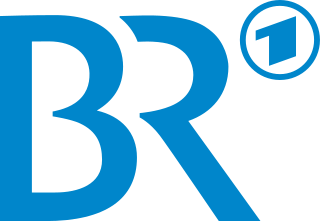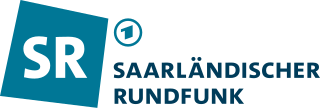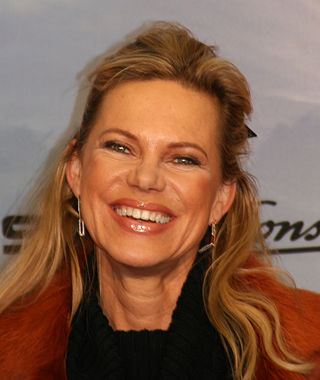
ARD is a joint organisation of Germany's regional public-service broadcasters. It was founded in 1950 in West Germany to represent the common interests of the new, decentralised, post-war broadcasting services – in particular the introduction of a joint television network.
Südwestrundfunk, shortened to SWR, is a regional public broadcasting corporation serving the southwest of Germany, specifically the federal states of Baden-Württemberg and Rhineland-Palatinate. The corporation has main offices in three cities: Stuttgart, Baden-Baden and Mainz, with the director's office being in Stuttgart. It is a part of the ARD consortium.
Mitteldeutscher Rundfunk, shortened to MDR, is the public broadcaster for the federal states of Thuringia, Saxony and Saxony-Anhalt in Germany. Established in January 1991, its headquarters are in Leipzig, with regional studios in Dresden, Erfurt and Magdeburg. MDR is a member of the ARD consortium of public broadcasters in Germany.

Bayerischer Rundfunk, shortened to BR, is a public-service radio and television broadcaster, based in Munich, capital city of the Free State of Bavaria in Germany. BR is a member organization of the ARD consortium of public broadcasters in Germany.

3sat is a free-to-air German-language public service television channel. It is a generalist channel with a cultural focus and is jointly operated by public broadcasters from Germany, Austria (ORF) and Switzerland. The coordinating broadcaster is ZDF, at whose Mainz facility the broadcasting centre with studios for in-house productions is located.
Television in Germany began in Berlin on 22 March 1935, broadcasting for 90 minutes three times a week. It was home to the first public television station in the world, named Fernsehsender Paul Nipkow.

Rundfunk Berlin-Brandenburg, commonly shortened to RBB, is an institution under public law for the German states of Berlin and Brandenburg, based in Berlin and Potsdam. RBB was established on 1 May 2003 through the merger of Sender Freies Berlin (SFB) and Ostdeutscher Rundfunk Brandenburg (ORB), based in Potsdam, and is a member of the Association of PSBs in the Federal Republic of Germany (ARD).

Saarländischer Rundfunk, shortened to SR, is a public radio and television broadcaster serving the German state of Saarland. With headquarters in the Halberg Broadcasting House in Saarbrücken, SR is a member of the ARD consortium of German public-broadcasting organizations.

Ostdeutscher Rundfunk Brandenburg, based in Potsdam, was the public broadcaster for the German federal state of Brandenburg from 12 October 1991 until 30 April 2003. It was a member organization of the consortium of public-law broadcasting organizations in Germany, ARD.

Nina Ruge is a German journalist, TV presenter and author.
Bayerischer Fernsehpreis is an award presented by the government of Bavaria, Germany since 1989. The prize symbol is the "Blue Panther", a figure from the Nymphenburg Porcelain Manufactory. The prize money is €10,000.
Christoph Dreher is a German filmmaker, musician and scriptwriter. From 2000 until 2020, he was a professor of audiovisual media.
ZDFtheaterkanal was a TV station and part of the digital TV package offered by ZDF. The channel was broadcast daily from 9 am until 2 am the following day, starting on 9 December 1999. The broadcasting was stopped on 7 May 2011 in favor of ZDFkultur.

Oliver Michael Dittrich is a German television personality, comedian, actor, and musician.
ZDFinfo is a German free-to-air documentary television channel owned by ZDF. It was launched on 27 August 1997 as ZDFinfokanal, and it became ZDFinfo on 5 September 2011. On 1 May 2012, a high-definition simulcast the channel was launched.
ZDFkultur was a German free-to-air television channel owned by ZDF. It was launched on 7 May 2011, replacing ZDF theaterkanal. It mainly broadcast music shows, such as Later... with Jools Holland, pop concerts and series from the ZDF archive, but also movies and theatre plays. On 1 May 2012, a high-definition simulcast was launched on satellite. On 22 February 2013, ZDF director Thomas Bellut announced that ZDFkultur would close in the near future, due to cost-saving measures at ZDF. The channel council agreed Bellut's proposal on 8 March 2013. The programming after the closure announcement consisting mostly of old ZDF archive content from the 1970s and 80s, with an annual budget of around €2 million. The channel was finally closed down on 30 September 2016.
The Axel-Springer-Preis is an annually awarded prize. The Award is given to young journalists in the categories print, TV, radio, and online journalism due to the decisions of the Axel-Springer-Akademie.
Hannes Michael Schalle is an Austrian director, writer, producer and film composer.
ZDF Musikkanal was the name of a television channel operated by ZDF which had started broadcasting on 1 January 1984 as part of the cable pilot projects in West Germany. The station broadcast a moderated programme with a thematic focus on music. The programmes broadcast came almost exclusively from the archives of the ZDF main programme.








